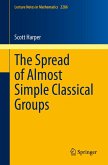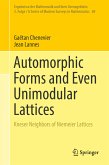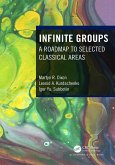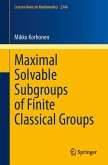This book provides a comprehensive coverage of the theory of conjugacy in finite classical groups. Given such a classical group G, the three fundamental problems considered are the following: to list a representative for each conjugacy class of G; to describe the centralizer of each representative, by giving its group structure and a generating set; and to solve the conjugacy problem in G-namely, given two elements of G, establish whether they are conjugate, and if so, find a conjugating element. The book presents comprehensive theoretical solutions to all three problems, and uses these solutions to formulate practical algorithms. In parallel to the theoretical work, implementations of these algorithms have been developed in Magma. These form a critical component of various general algorithms in computational group theory-for example, computing character tables and solving conjugacy problems in arbitrary finite groups.
Dieser Download kann aus rechtlichen Gründen nur mit Rechnungsadresse in A, B, BG, CY, CZ, D, DK, EW, E, FIN, F, GR, HR, H, IRL, I, LT, L, LR, M, NL, PL, P, R, S, SLO, SK ausgeliefert werden.









